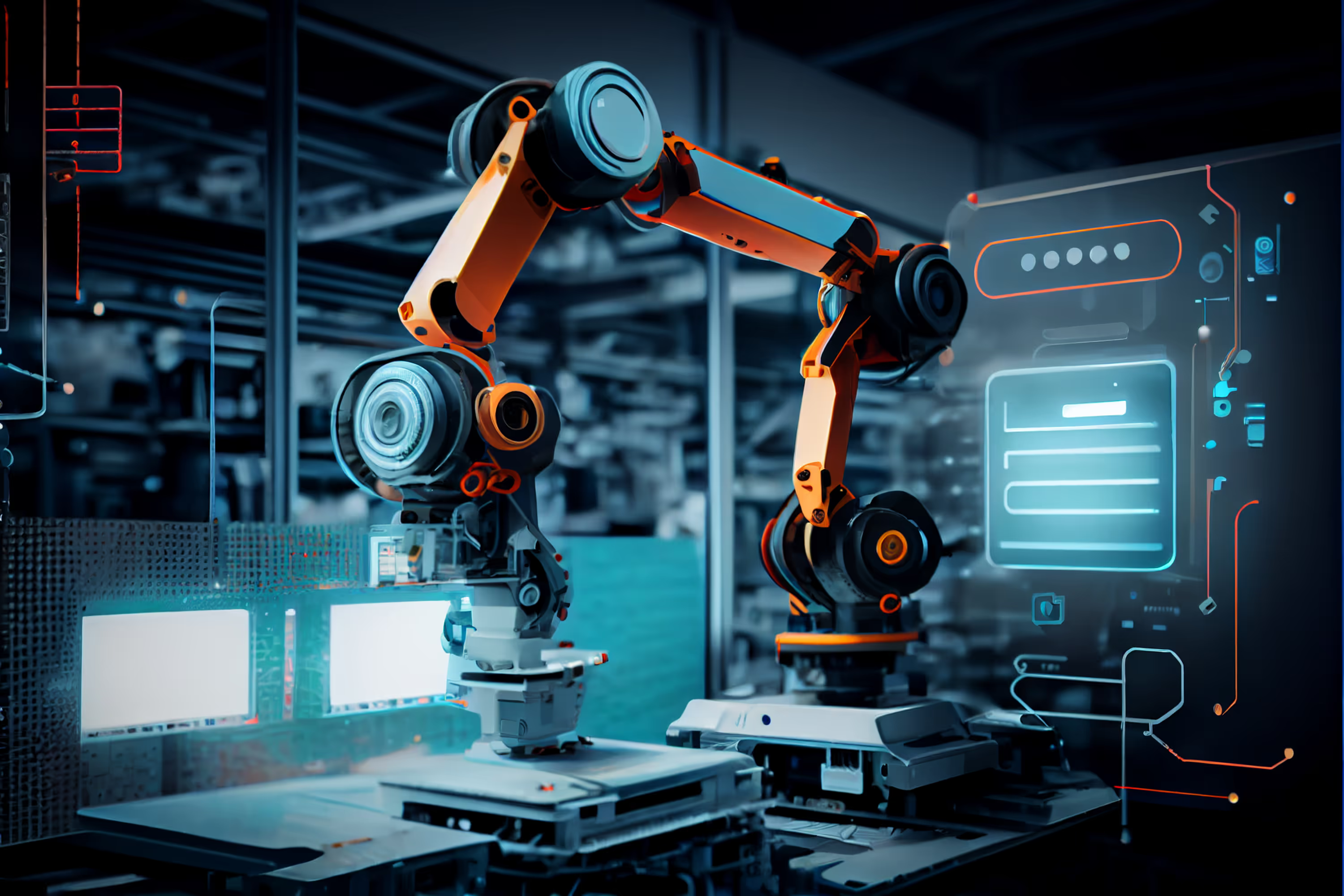Digitisation in UK Manufacturing: Playing Catch-Up

Digitisation has completely re-shaped the manufacturing industry, so much so that we’re undergoing the fourth industrial revolution, known as Industry 4.0. From the very beginning, the UK has stood tall as one of the biggest manufacturing nations in the world, but in the digital age of automation and smart factories, there’s a very real possibility that the UK will lose its status as an international manufacturing leader. Why? Because UK manufacturers are failing to adopt new technology at a fast enough rate.
So, how can UK manufacturers turn the tide and retain their standing as global giants? The answer is rapid digitisation on all fronts.
Robot Density
The UK is the seventh largest manufacturing nation in the world, and it got there by having a proactive mindset. We were the first to adopt steam and water in the first industrial revolution, electricity in the second industrial revolution, and computers in the third industrial revolution. Now we’re at the fourth industrial revolution which requires the adoption of robots, the mindset seems to have shifted from eager proactiveness to delayed reactiveness.
The UK is the slowest country in the industrial G7 to adopt new tech (IFR), and it’s the only G7 country to be outside the global top 20 for robot density. For context, Slovenia is ranked as the 61st largest global manufacturer, but is ranked 10th globally for robot density. The UK is 24th for robot density, despite being the world’s 7th largest manufacturing nation (Macro Trends). But why does robot density matter?
Robot density is a direct reflection of automation adoption. The entire premise of Industry 4.0 hinges on automation, so any manufacturer that fails to automate at this stage simply will not survive the impending fourth industrial revolution, much less thrive. The global average robot density in manufacturing is 141 robots per 10,000 workers, but the UK only has 101 robots per 10,000 workers (Balloon One).
If countries that are nowhere near the UK’s level in terms of manufacturing output are able to automate and adopt new tech at an accelerated pace, why aren’t UK manufacturers doing the same?
Lacking Tech Investment
The majority of manufacturers in the UK say under investment into new tech is the reason why adoption has been so low. It’s important to note that a lack of investment into smart tech isn’t just a UK problem – nearly all global manufacturing nations have faced the same obstacle, but most have realised that the problem is legacy tech and actively worked to address it, largely through robot implementation. From the robot density stats, it’s clear the UK hasn’t managed to shift its reliance on legacy tech fast enough – and that’s in spite of manufacturers acknowledging the problem at hand.
Alarmingly, 93% of UK manufacturers say that continued underinvestment in digitisation will undoubtedly see businesses collapse within the next 10 years, and a further 73% say that relying on legacy tech is more harmful to businesses than the effects of Brexit (iBASEt).
So, if manufacturers know that investment digitisation is the key to survival, why aren’t they investing? Well, there has been a lot of economic uncertainty within the UK that has taken precedence in the short term, including navigating Brexit and grappling with increasing inflation and soaring supplier costs. This is on top of massive worker shortages within the industry. However, now the dust is slowly starting to settle, manufacturers can focus more on the problems digitisation can solve and invest in tech adoption at a more rapid pace.
Turning the Tide
The near-100,000 job vacancy problem currently plaguing the manufacturing sector can be solved with automated robots and the likes of dark factories, both of which allow human workers to up-skill and innovate as opposed to doing laborious, mundane tasks. This would also help to plug the £7 billion in output losses due to worker shortages (Make UK). Productivity would increase as a consequence; vital considering the UK lags at around 16% of industrialised productivity.
There’s no doubt that the UK manufacturing industry is facing a myriad of problems, but digitisation could turn the tide. If UK manufacturers automate, increase their productivity and output, and continue to focus on world-leading product innovation, the UK stands every chance of retaining its reputation for global manufacturing excellence, but immediate adoption is crucial.
Digitisation in Sales and Marketing
Digital transformation doesn’t stop at the factory floor. Whether it’s shipping products to trade shows or having sales engineers on the road, there’s a huge opportunity for sales and marketing processes to be digitised and automated, too. When you consider the push for increasing UK manufacturing exports to £1 trillion by 2030 (Gov) digital and virtual tools will play an even more crucial role.





.avif)








